From tackling climate change to conserving natural resources to championing the livelihoods of employees, there is no shortage of ways that organisations can contribute to shaping a more sustainable world.
However, according to the World Economic Forum, whilst 90% of executives believe sustainability in business is important, only 60% of organisations have a sustainability strategy. This figure highlights a clear divide in what leaders believe in theory, and what is done in practice.
With that in mind, just how sustainable are our modern organisations? Are they upholding the basic, minimum responsibilities they have to both the planet and its people?
What are the principles of organisational sustainability?
The United Nations Global Compact is ‘the world’s largest corporate sustainability initiative’. It’s designed to encourage organisations to align their business operations and strategies with ‘universal principles on human rights, labour, environment, and anti-corruption’ and to ‘take actions that advance societal goals’.
The Global Compact is based on the Ten Principles linked to the Sustainable Development Goals (SDGs):
- Support and respect the protection of internationally proclaimed human rights.
- Make sure that they are not complicit in human rights abuses.
- Uphold the freedom of association and the effective recognition of the right to collective bargaining.
- Eliminate all forms of forced and compulsory labour.
- Abolish child labour.
- Eliminate discrimination in respect of employment and occupation.
- Support a precautionary approach to environmental challenges.
- Undertake initiatives to promote greater environmental responsibility.
- Encourage the development and diffusion of environmentally friendly technologies
- Work against corruption in all its forms, including extortion and bribery.
Of course, not only are these high-level principles, but they also represent the minimum that businesses should be doing in the name of sustainable, ethical, and responsible practice.
In recent years, corporate responsibility (CR), also known as corporate social responsibility (CSR), has risen higher on the organisational agenda. CR begins with an organisation’s value system – and informs the principles and practices it engages with in the name of ‘doing business’. Leaders should aim to strategically embed sustainability across three critical areas, namely environment, social, and governance (ESG).
What are the benefits of corporate sustainability?
A sustainable business is one that conducts its operations without causing harm to people or planet – and safeguards its long-term prospects and viability in the process.
The integration of sustainability with corporate strategy helps set the stage for increased competitive advantage and future business success. For example, it can help businesses to:
- meet changing consumer demands, legal and regulatory requirements
- alleviate pressure from investors and shareholders – Gartner report that 85% of investors consider ESG factors in their investments, and 91% of banks monitor the ESG performance of investments
- reduce operational costs and increase financial performance
- boost brand image and reputation
- increase organisational resilience
- balance short-term and long-term growth and objectives
- recruit top talent, boost employee satisfaction, wellbeing and retention
- identify innovative solutions to business problems
- bolster the triple bottom line (TBL) – profits, people, and planet.
Further underlining the business benefits of CSR, Harvard Business Review report that 77% of consumers are motivated to purchase from companies committed to making the world a better place, and 25% of consumers – and 22% of investors – cite a zero-tolerance policy towards companies that embrace questionable practices on the ethical front.
How can sustainability principles be applied in the workplace?
Organisations are making huge advances towards sustainable practices, from delivering social governance to reducing carbon emissions to preserving the natural environment. True sustainable change requires organisations to make changes at every level, and across every division – from supply chain partnerships to procurement practices to recruitment protocols and beyond. Sustainability issues – and opportunities to improve – should inform all aspects of the business model, business strategy, long-term organisational roadmap, and day-to-day business practice.
Let’s take a look at what businesses are doing in practice to uphold their CSR ambitions and boost sustainability efforts:
- investing in renewable energy sources
- ensuring ethical working and employment practices exist throughout the organisation
- incorporating CSR and ESG into decision-making processes
- setting sustainability goals and benchmarks and engaging in sustainability reporting
- implementing flexible and telecommuting options to reduce carbon footprint
- sourcing ethically and responsibly sourced goods
- encouraging recycling, reusing, and actions that support the circular economy and promote waste reduction (such as use of single-use plastics)
- prioritising sustainable investment and ‘green’ finance options
- organising volunteering, fundraising, resource-sharing or other activities that have a positive social impact/environmental impact for communities
- offering incentives for ideas and actions that boost CSR efforts.
These showcase just a handful of examples of the sustainability initiatives undertaken by small businesses in the name of making a difference.
How can sustainability performance be measured and tracked by business leaders?
Measuring and tracking sustainability performance is key to pinpointing areas for further improvement. Fortunately, there are a variety of methods business leaders can use to ascertain how sustainability efforts and plans are progressing – and the scale of impact they’re having.
Outlining key performance indicators (KPIs) helps define and track performance according to specific metrics. These will vary according to the size and nature of the business and the industry in which it operates, but could include aspects such as water usage, waste generation, social impact, energy consumption, and emissions.
Engaging in sustainability reporting helps leaders feed back on ESG-related goals to internal and external stakeholders. An organisation may wish to implement specific frameworks, such as the Sustainability Accounting Standards Board (SASB) or the Global Reporting Initiative (GRI).
Businesses also have options such as life cycle assessment (LCA), (where products and services are assessed for their environmental impact/value chain across the entire cycle), environmental management systems (EMS) standards, (such as ISO 14001 and European Sustainability Reporting Standards), and third-party certification, such as Fair Trade and B Corp. Each helps to paint a more accurate picture of the scale of any positive impact on social, ethical, and environmental issues.
Take a leading role in ensuring sustainable practices lie at the heart of corporate strategy
Are you passionate about transforming the world of business to create a legacy that benefits current and future generations? Ready to take the next step in your career and succeed in more senior roles?
Advance your people and organisational management skills – and develop in your role as an inspirational manager and leader – with the University of Sunderland’s online MSc Management with Human Resources course.
You’ll become adept at strategic planning, organisational management, and other key aspects of running small-to-large businesses, alongside specialist topics within the HR discipline. During your highly flexible, 100%-online studies, you can expect to explore: entrepreneurship; global trade; data analytics; marketing and social media; organisational development and change; resourcing and talent management; people management and cross-cultural leadership; risk management; international HRM; and financial planning.






